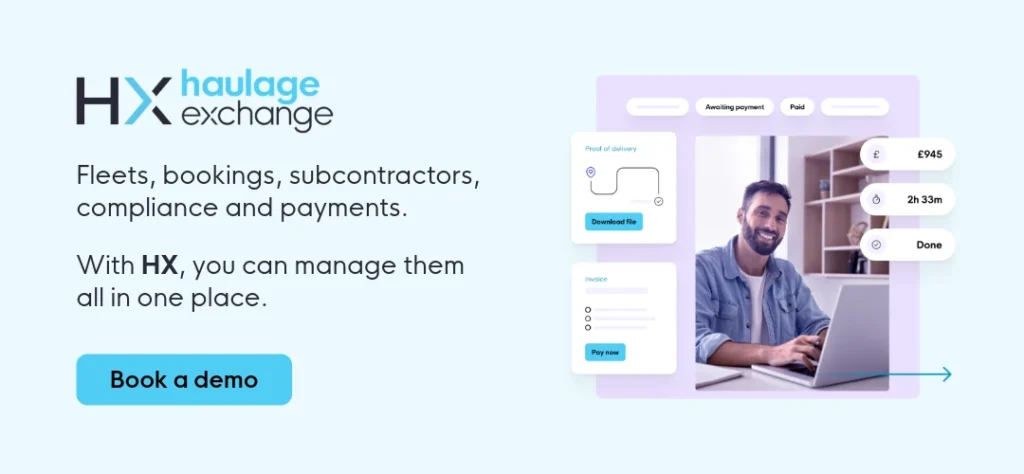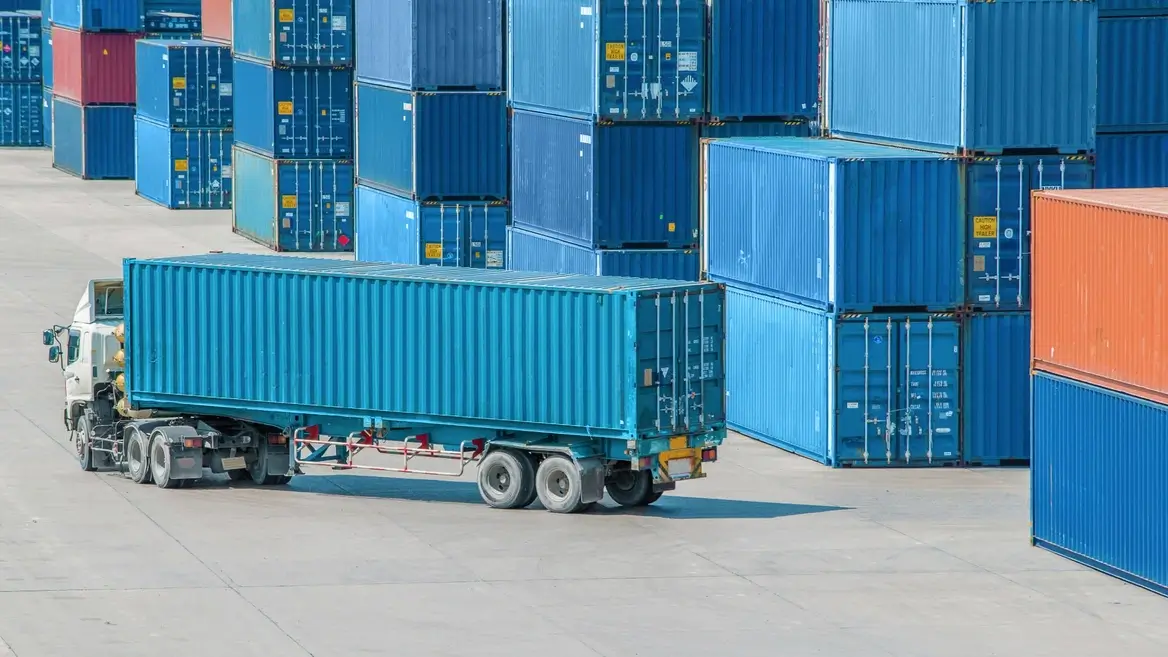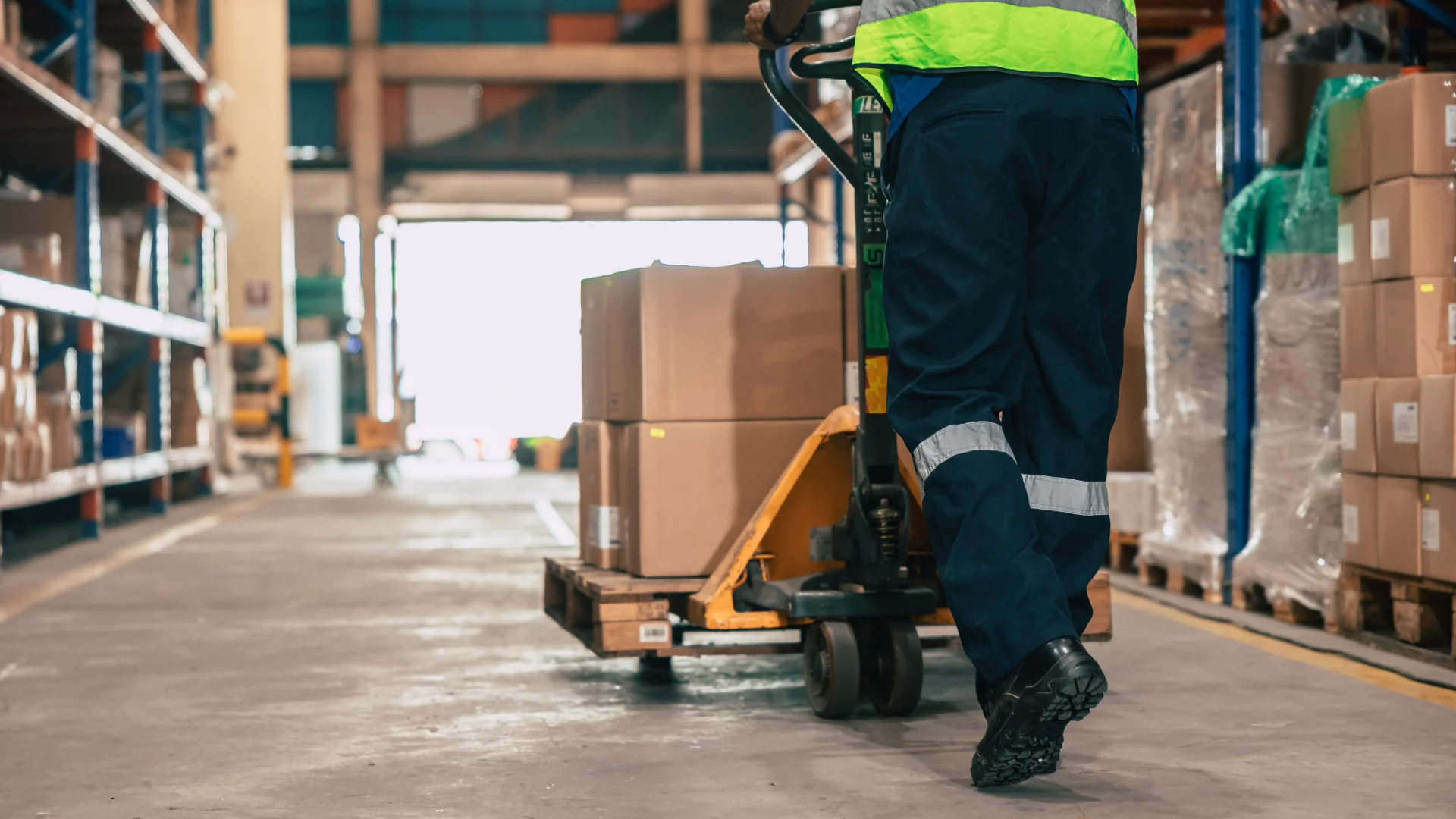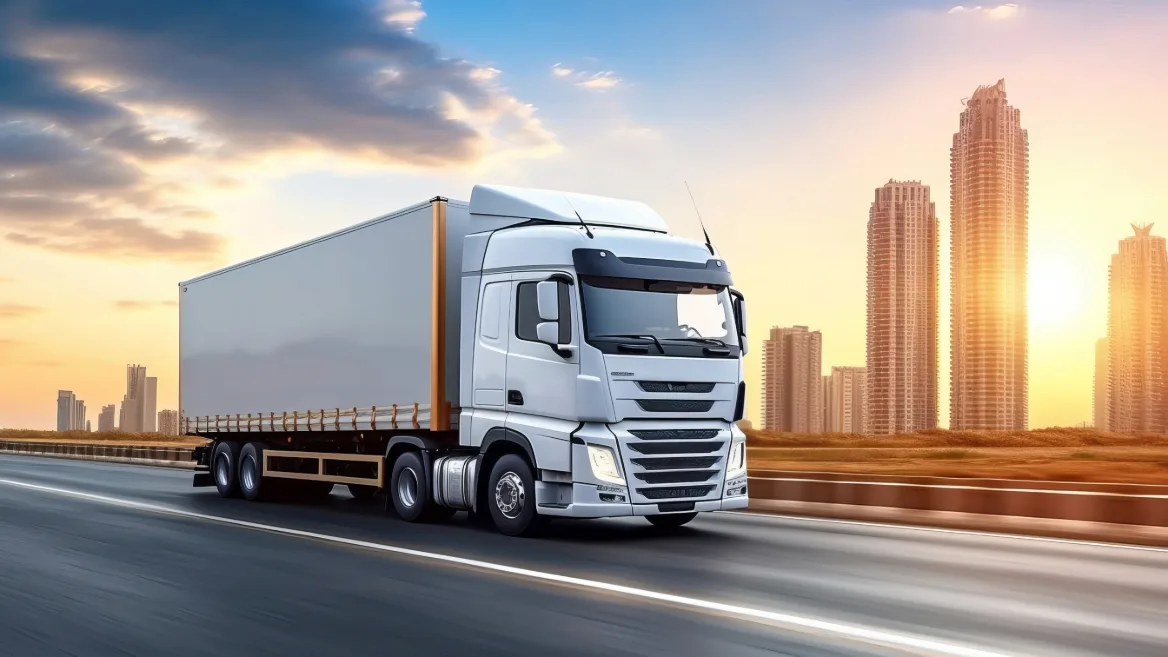Understanding the logistics industry can feel overwhelming, especially when dealing with terms like NVOCCs and freight forwarders. For road haulage companies, these might not be everyday concerns, but they matter if you want to expand your operations internationally or work across multiple freight types.
In this article, we’ll break down what these NVOCCs and freight forwarders do, how they differ, and why understanding these roles can benefit your business.
What we’ll cover
What is an NVOCC?
A Non-Vessel Operating Common Carrier (NVOCC or NVO) is a logistics provider specialising in ocean freight.
They don’t own or operate ships but lease space from shipping lines. This setup lets them act as carriers for their customers, taking responsibility for the movement of goods while outsourcing the physical transport to vessel operators.
NVOCCs often bridge the gap between shippers and shipping lines, providing a more accessible option for companies that need ocean freight services without dealing directly with complex carrier contracts. This makes them an attractive partner for businesses new to international shipping.
Additional services offered by NVOCCs
Beyond managing vessel space and handling bills of lading or waybills, NVOCCs offer other services that streamline international shipping:
- End-to-end tracking: Many NVOCCs provide visibility tools that let clients track their shipments through various stages of the journey.
- Customised shipping solutions: They often tailor container types and consolidation options to suit different types of cargo, from standard goods to refrigerated or oversized items.
- Regulatory compliance support: NVOCCs help businesses adhere to international shipping regulations, ensuring proper documentation and avoiding delays at customs.
For haulage companies exploring international markets, partnering with an NVOCC can simplify the process of moving goods across borders while reducing the need for in-house expertise.
What is a bill of lading?
A bill of lading is a legal document issued by a carrier to acknowledge receipt of cargo for transport. It serves three primary purposes:
- Proof of shipment: It confirms that the carrier has received the goods in good condition and details the nature and quantity of the cargo.
- Contract of carriage: It acts as an agreement between the shipper and carrier, outlining the terms of transportation.
- Document of title: It allows the holder of the bill to claim ownership of the goods. This is particularly important in international shipping, as goods often pass through multiple hands before reaching the final destination.
NVOCCs issue their own bills of lading, known as “house bills of lading,” which allow them to act as carriers to their customers while coordinating with the shipping lines responsible for physical transportation.
Understanding bills of lading is key for businesses dealing with international freight, as these documents play an important role in ensuring smooth and dispute-free shipping operations.
What is a freight forwarder?
A freight forwarder is a logistics expert who coordinates the transportation of goods across multiple modes, including road, sea, and air.
They act as intermediaries, working with carriers to create seamless supply chains for their clients. Unlike NVOCCs, freight forwarders don’t issue their own bills of lading or take on carrier responsibilities, focusing instead on providing comprehensive logistics solutions.
Freight forwarders are especially valuable for businesses juggling complex supply chains or transporting goods to multiple destinations. Their expertise in managing logistics across different regions and regulations allows them to offer a truly end-to-end service.
Additional responsibilities of freight forwarders
Freight forwarders go beyond just booking freight transport:
- Supplier and carrier coordination: They manage schedules and negotiate contracts with carriers, saving businesses time and resources.
- Insurance and claims support: Many forwarders will have extensive freight forwarder insurance, helping clients protect their goods and navigate claims if something goes wrong.
- Risk management: With detailed knowledge of shipping routes, weather patterns, and regulatory challenges, they minimise risks during transit.
For haulage companies focused on road freight, freight forwarders can help integrate services like 3PL logistics or introduce your business to opportunities involving freight forwarding services, connecting you to broader supply chain operations.

NVOCCs and freight forwarders: how they differ
While both NVOCCs and freight forwarders play important roles in logistics, their responsibilities and legal standing set them apart.
Contract responsibilities and liability
An NVOCC acts as a carrier, assuming liability for the cargo during its journey. This means they’re responsible for any loss or damage to the goods while under their care, even though they don’t operate their own vessels.
In contrast, a freight forwarder serves as an intermediary, facilitating contracts between shippers and carriers without taking on liability for the cargo.
Ownership of transport documents
One key distinction is the issuance of transport documents. NVOCCs issue their own bills of lading—often called “house bills of lading”—which allows them to function as carriers in the eyes of their customers.
Freight forwarders, however, rely on documentation provided by third-party carriers and focus on managing logistics rather than acting as a carrier themselves.
Charging for services
Both NVOCCs and freight forwarders charge for their expertise and services, but their pricing structures differ.
- NVOCCs: Typically, NVOCCs charge for container leasing, shipping space, and related logistics services. Their fees often include surcharges like terminal handling charges, demurrage fees, and customs-related costs. NVOCCs have the flexibility to consolidate shipments, allowing them to offer competitive rates for smaller loads.
- Freight forwarders: Freight forwarders and freight brokers charge a management fee for coordinating logistics, which may include booking carriers, securing warehousing, and handling customs clearance. Their pricing is more service-focused, covering their role in managing supply chains rather than operating as a carrier.
Legal responsibilities and licensing requirements
NVOCCs and freight forwarders must meet different legal obligations to operate.
- NVOCCs: These entities are legally considered carriers, even though they don’t own vessels. In many countries, they must register with maritime authorities and obtain specific licences to handle shipments. For example, NVOCCs operating in the US must register with the Federal Maritime Commission (FMC).
- Freight forwarders: Freight forwarders don’t need carrier-specific licences but must comply with regulations governing customs clearance, international trade, and logistics. In the UK, they often work within the guidelines set by industry organisations like the British International Freight Association (BIFA).
Overlapping roles
An interesting distinction is that while an NVOCC can also act as a freight forwarder, the reverse isn’t true.
Some NVOCCs expand their services to include forwarding, leveraging their expertise to coordinate shipments across multiple modes of transport.
Freight forwarders, however, don’t have the authority to issue their own bills of lading or assume the role of a carrier, limiting their scope to logistics management.
When to use an NVOCC or freight forwarder
The choice between NVOCCs and freight forwarders depends on the complexity of your shipping needs.
- Use an NVOCC for simplified international shipping, particularly when focusing on ocean freight. Their ability to consolidate smaller shipments into containers and issue their own bills of lading makes them ideal for businesses needing streamlined solutions.
- Work with a freight forwarder for complex supply chains involving multiple transport modes. Freight forwarders excel in coordinating road haulage with sea or air transport, making them a valuable partner for businesses with diverse logistical needs.
Why haulage companies should understand NVOCCs and freight forwarders
If your haulage business primarily focuses on road transport, you might wonder why NVOCCs and freight forwarders matter.
The reality is that understanding these roles can prepare you for growth, particularly if you’re considering expanding into 3PL logistics or offering multimodal freight solutions.
Expanding into international logistics
Diversifying into international freight can boost revenue and attract a broader customer base. NVOCCs and freight forwarders play important roles in connecting road freight to global supply chains, giving you the flexibility to handle shipments beyond UK borders.
Collaborating with NVOCCs and freight forwarders
Partnering with NVOCCs allows you to complement your haulage services with ocean freight solutions, while freight forwarders can help you build multimodal operations. These partnerships mean you don’t have to invest heavily in infrastructure but can still meet your clients’ international shipping needs.
How Haulage Exchange can support your freight operations
Haulage Exchange offers tools and connections that make it easier for haulage companies to collaborate with freight forwarders and expand their operations.
Using HX to connect with freight forwarders
Haulage Exchange provides access to a network of freight forwarders looking for reliable partners in road haulage. By joining the platform, you can secure additional work and build relationships with companies managing larger supply chains.
Streamlining road haulage with HX tools
With features like real-time tracking, route optimisation, and load matching, HX helps haulage companies operate more efficiently. This allows you to take on more work, including partnerships with NVOCCs and freight forwarders, without adding unnecessary pressure to your fleet.




